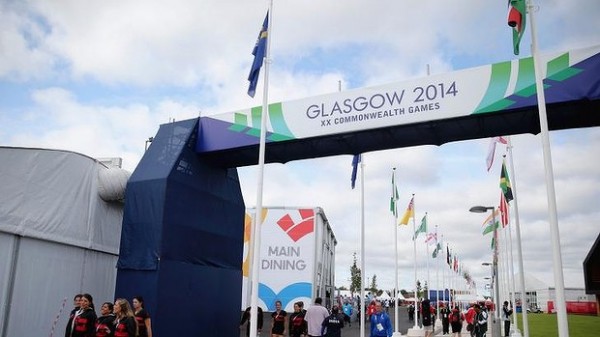About 30 Commonwealth Games athletes from Sierra Leone are considering extending their stay in Glasgow amid fears over the Ebola virus, reports the BBC Scotland.
Two of the West African country’s athletes have reportedly tested negative for the ebola virus.
Men’s Table Tennis participant Samuel Morris is the second Team Sierra Leone athlete to have been tested at the Games village, days after cyclist Moses Sesay was tested and cleared by the doctors in Glasgow.
Another Sierra Leone cyclist, Mohammed Tholley, has vanished from the athletes’ village.
Sesay, 32, was admitted to the hospital last week after taking ill and doctors tested him for several conditions including Ebola.
He was given an all-clear and released from the hospital in time to compete in the men’s individual time trial on Thursday.
It later emerged that Morris, 34, was also tested in Glasgow and given the all-clear.
Morris said he developed a fever two days after arriving at the athletes’ village.
“They took me to the general hospital. They tested me for Ebola,” said Freetown-born table tennis player.
“I thought it was ordinary malaria diagnosis. But they didn’t say that. They thought it was just a change of weather.”
Meanwhile, Sierra Leone’s Commonwealth Games chef de mission, Unisa Deen Kargbo, said Mohamed Tholley was due to compete in the men’s time trial on Thursday but failed to show up for the start of the event.
Mr Kagbo said: “He did not talk to anyone in the camp. No-one knows where he is.
“Legally, Mohamed Tholley is supposed to be in the country up until September. But if he had discussed that with any member of the delegation, we would not have been much worried.
“Whether he has gone missing or whether he has moved to his family members, we haven’t got a communication. Now we are trying to get in touch with some family members.”
He added: “We just want to be sure first of all that he is safe, wherever he is, and we don’t know if he is safe or unsafe.
“We have reported this to the Commonwealth Games organisers.”
The cyclist’s coach, Winston Crowther, believes Tholley may have vanished due to fears over the Ebola outbreak.
However, Mr Crowther did not rule out other reasons for his disappearance, including economic factors.
Sierra Leone has declared a public health emergency after more than 200 people died from the disease.
Ebola was identified in the Sudan and the Democratic Republic of Congo in 1976 started in
The 2014 outbreak in West Africa is the largest recorded to date and was first reported in Guinea in February.
It then spread to Liberia and Sierra Leone, and a person who travelled from Liberia to Nigeria died of the virus shortly after arriving in Lagos last week.
It kills between 50% and 90% of people infected with the virus, which could be contacted by contact with the blood or bodily fluid of an infected person.
(Culled from the BBC report- Ebola-fear athletes want longer UK stay)




